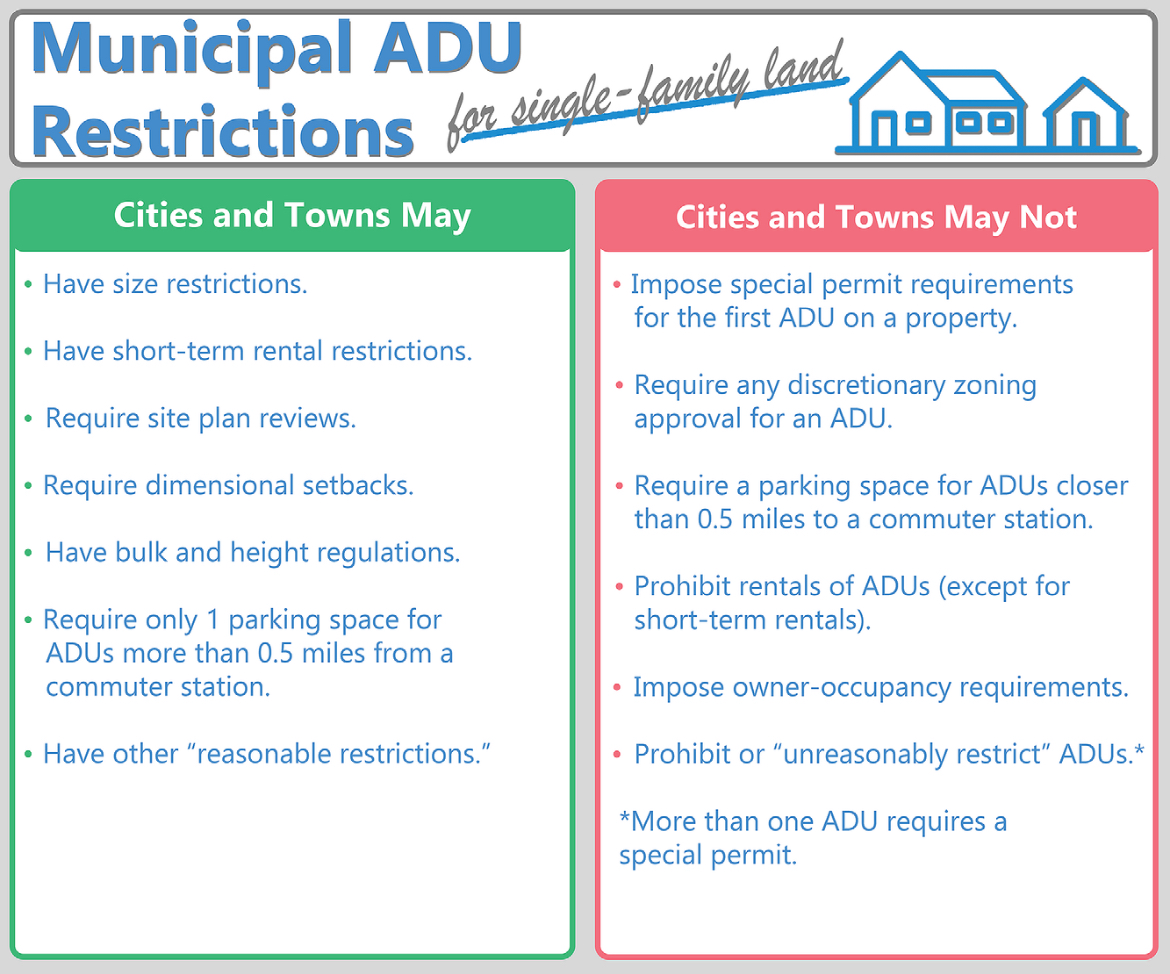Housing Bond Bill Signed by Governor Includes Single-Family ADUs by Right
. Posted in News - 0 Comments
By Kimberly Rau, MassLandlords, Inc.
Gov. Maura Healey signed the $5.1 billion housing bond bill, also known as the Affordable Homes Act, into law on Aug. 6, 2024. One of the items in the bill was a provision allowing for accessory dwelling units by right on single-family zoned plots of land throughout the state.

Municipalities may have some restrictions, but the new bond bill makes ADUs by-right for on single-family zoned lots. (Image: CC by SA Jennifer Rau for MassLandlords Inc.)
The law permits construction of an accessory dwelling unit (ADU) – also sometimes called an additional dwelling unit, accessory apartment, in-law apartment or granny flat – by right on lots zoned as single family (no special permit required).
Cities and towns cannot restrict ADU occupancy to family members or caretakers. They also cannot require owner occupancy of either the primary dwelling unit or the ADU, and may not prohibit an owner from renting out the ADU. The only exception is when cities and towns restrict short-term rentals, such as renting through Airbnb. Such short-term rentals may be prohibited, depending on the municipality.
Homeowners may need to comply with restrictions regarding the “bulk” of the ADU (the building’s envelope) and its height, depending on existing municipal regulations. They also must abide by setback rules for their city or town and, when applicable, follow existing laws regarding septic system limitations.
Cities and towns may require one extra parking space for ADUs if the property is located more than a half-mile from a commuter rail, subway or bus station, or ferry terminal. If the property is located within a half-mile from one of these commuter stations, the municipality must allow the ADU to be built without requiring additional parking.
Note that this policy is only for single-family zoned plots of land, and applies to only one ADU. If you have a plot of land already zoned for a multifamily home, you may need a special permit to construct an ADU. Similarly, if you want additional ADUs on your single-family plot, you will need a special permit from your city or town. The town may restrict their construction, and the renting out thereof.
The new ADU provisions are encouraging news. However, the language of the bill is vague in places. It prohibits cities and towns from placing “unreasonable restrictions” on those seeking to construct an ADU, but doesn’t spell out what “unreasonable” means. It also restricts parking requirements for properties within a certain distance of a commuter station, but what about bus stops? A bus stop a mile away from the bus station may still be used as part of a car-free commute, but a bus stop isn’t the same as a bus station. These are just a couple of issues that could spur litigation from municipalities that are already hostile to ADUs.
That said, we welcome anything that creates more housing, even if it’s a drop in the bucket. Lt. Governor Kim Driscoll has stated that Massachusetts needs an additional 200,000 housing units. Gov. Healey projects that the new ADU law will create just 10,000 additional housing units over the next five years. But it’s a start.
You can read this part of the bill, along with a plain-English breakdown of its verbiage, on our website.





